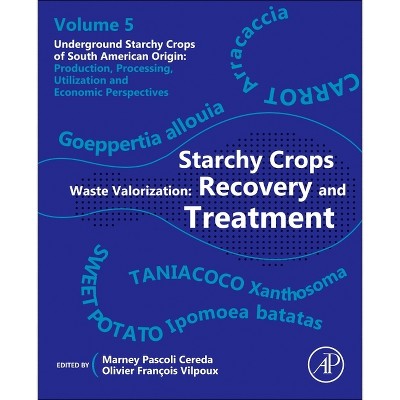Sponsored

Classical Conditioning and Operant Conditioning - by W W Henton & I H Iversen (Paperback)
$52.99Save $7.00 (12% off)
In Stock
Eligible for registries and wish lists
Sponsored
About this item
Highlights
- Since the appearance of the treatise on "Schedules of Reinforcement" by Ferster and Skinner over two decades ago, the literature in behavior analysis, both experimental and applied, has been dominated by a range of studies dedi- cated to providing ever more systematic and refined accounts of these "mainsprings of behavior control.
- Author(s): W W Henton & I H Iversen
- 356 Pages
- Gardening, General
Description
Book Synopsis
Since the appearance of the treatise on "Schedules of Reinforcement" by Ferster and Skinner over two decades ago, the literature in behavior analysis, both experimental and applied, has been dominated by a range of studies dedi- cated to providing ever more systematic and refined accounts of these "mainsprings of behavior control. " For the most part, the analysis has been pursued in the best traditions of "scientific methodology" with careful atten- tion to the isolation of controlling variables in unitary form. Of late, relatively simple interaction effects have provided an important additional focus for more sophisticated analyses. It is clear, however, from even a cursory survey of the monumental research and conceptual analysis which is represented in this scholarly volume by Henton and Iversen that the surface ofthis complex "be- havioral interactions" domain has barely been scratched. The primary focus of this pioneering effort extends the competing response analysis across all experimental schedules, both classical and instrumental, as well as the interactions between the two. Appropriately, the analysis empha- sizes overt behavioral interactions, beginning with the simplest case of one operant and one respondent, and inevitably implicating more diverse and subtle interactions. As the analysis expands to include interactions between multiple recorded responses, increasingly more precise empirical specifications ofrecip- rocal interactions in response probabilities are revealed independently of con- ventional procedural labels (i. e., operants, respondents, collaterals, adjunc- tives, etc. ) and traditional theoretical distinctions.Dimensions (Overall): 9.61 Inches (H) x 6.69 Inches (W) x .78 Inches (D)
Weight: 1.33 Pounds
Suggested Age: 22 Years and Up
Number of Pages: 356
Genre: Gardening
Sub-Genre: General
Publisher: Springer
Format: Paperback
Author: W W Henton & I H Iversen
Language: English
Street Date: October 9, 2011
TCIN: 85050182
UPC: 9781461263128
Item Number (DPCI): 247-43-4355
Origin: Made in the USA or Imported
If the item details aren’t accurate or complete, we want to know about it.
Shipping details
Estimated ship dimensions: 0.78 inches length x 6.69 inches width x 9.61 inches height
Estimated ship weight: 1.33 pounds
We regret that this item cannot be shipped to PO Boxes.
This item cannot be shipped to the following locations: American Samoa (see also separate entry under AS), Guam (see also separate entry under GU), Northern Mariana Islands, Puerto Rico (see also separate entry under PR), United States Minor Outlying Islands, Virgin Islands, U.S., APO/FPO
Return details
This item can be returned to any Target store or Target.com.
This item must be returned within 90 days of the date it was purchased in store, shipped, delivered by a Shipt shopper, or made ready for pickup.
See the return policy for complete information.

















